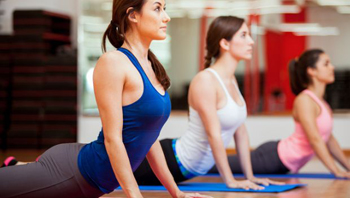New Delhi, Feb 6: A new study reveals that taking non-steroidal anti-inflammatory drugs, such as Ibuprofen, may provide little benefit than a placebo when it comes to treating back pain.
 The study found that patients taking anti-inflammatory drugs were 2.5 times more likely to suffer from gastro-intestinal problems such as stomach ulcers and bleeding.
The study found that patients taking anti-inflammatory drugs were 2.5 times more likely to suffer from gastro-intestinal problems such as stomach ulcers and bleeding.
The research, published in the Annals of the Rheumatic Diseases, doesn't mean NSAIDs don't work at all for back pain and shouldn't be used.
It revealed that only one in six patients treated with the pills achieve any significant reduction in pain, suggesting that it's possible that some people may still benefit from using them.
Lead author Manuela Ferreira from the University of Sydney said the study highlights an urgent need to develop new therapies to treat back pain which affects 80 percent of Australians during their lifetime.
"Back pain is the leading cause of disability worldwide and is commonly managed by prescribing medicines such as anti-inflammatories. But our results show anti-inflammatory drugs actually only provide very limited short-term pain relief. They do reduce the level of pain, but only very slightly and arguably not of any clinical significance," Ferreira added.
For the study, the team examined 35 trials involving more than 6000 people.
"Millions of Australians are taking drugs that not only do not work very well, but are also causing harm. We need treatments that will actually provide substantial relief of these people's symptoms," said co-researcher Gustavo Machado.
"Better still, we need a stronger focus on preventing back pain in the first place. We know that education and exercise programs can substantially reduce the risk of developing low back pain," Machado explained.
The study is the latest work from The George Institute questioning the effectiveness of existing medicines for treating back pain.
Back pain can range from a dull, constant ache to a sudden, sharp pain that makes it difficult to move. Although back pain usually gets better by itself after a few weeks, it might be a good idea to seek medical help.
Maintaining a healthy weight is important for overall health and can help you prevent and control many conditions, including back pain.





Comments
Add new comment